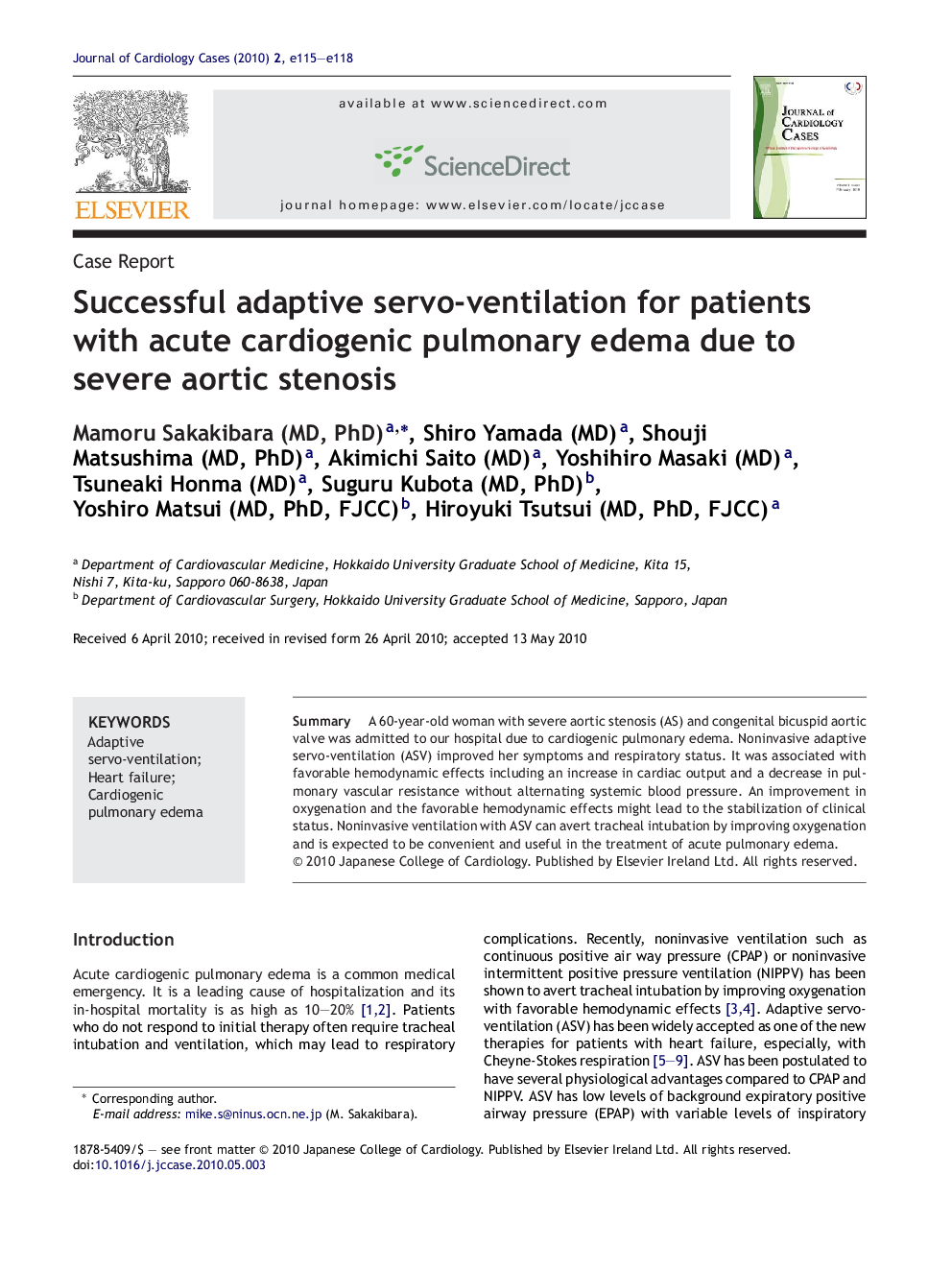| Article ID | Journal | Published Year | Pages | File Type |
|---|---|---|---|---|
| 2964022 | Journal of Cardiology Cases | 2010 | 4 Pages |
Abstract
SummaryA 60-year-old woman with severe aortic stenosis (AS) and congenital bicuspid aortic valve was admitted to our hospital due to cardiogenic pulmonary edema. Noninvasive adaptive servo-ventilation (ASV) improved her symptoms and respiratory status. It was associated with favorable hemodynamic effects including an increase in cardiac output and a decrease in pulmonary vascular resistance without alternating systemic blood pressure. An improvement in oxygenation and the favorable hemodynamic effects might lead to the stabilization of clinical status. Noninvasive ventilation with ASV can avert tracheal intubation by improving oxygenation and is expected to be convenient and useful in the treatment of acute pulmonary edema.
Related Topics
Health Sciences
Medicine and Dentistry
Cardiology and Cardiovascular Medicine
Authors
Mamoru Sakakibara, Shiro Yamada, Shouji Matsushima, Akimichi Saito, Yoshihiro Masaki, Tsuneaki Honma, Suguru Kubota, Yoshiro Matsui, Hiroyuki Tsutsui,
